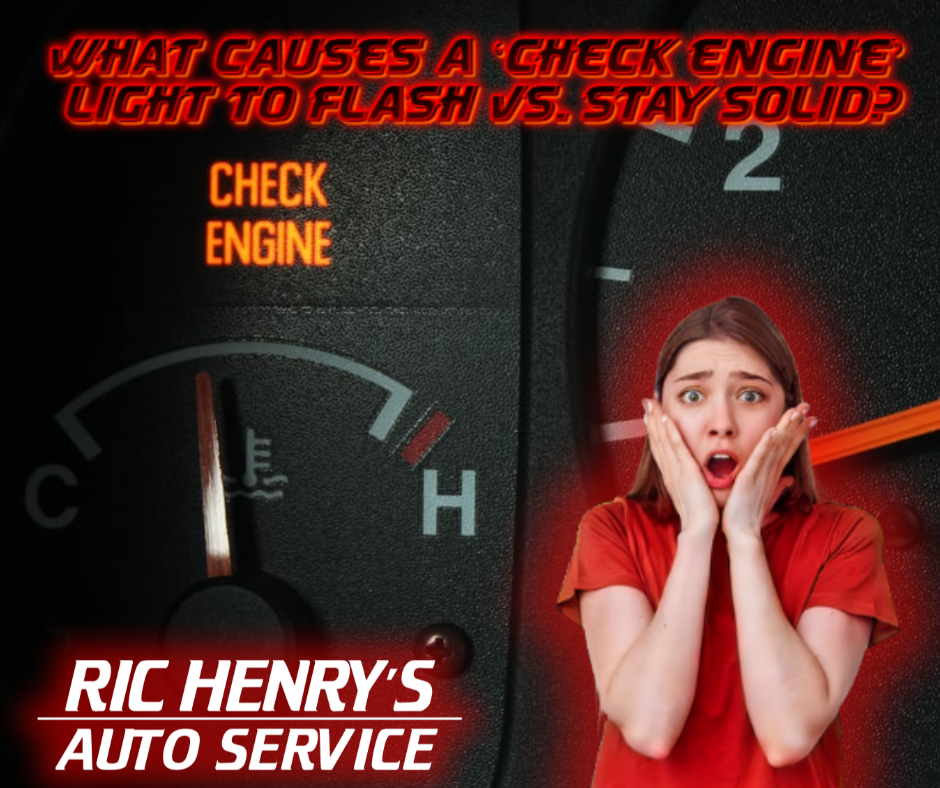The Science of Horsepower vs. Torque
NaTasha Brand • June 30, 2025
(And Why Both Matter)

When it comes to automotive performance, few debates are as enduring—or as misunderstood—as the battle between horsepower and torque. Some gearheads swear by raw torque, while others chase high horsepower numbers like they’re the Holy Grail of speed. But what’s the real difference? And why do both matter for your ride, whether you're cruising down Chadbourne Street or tearing up the backroads near Lake Nasworthy?
Let’s break it down
Horsepower vs. Torque: What’s the Deal?
Torque: The Muscle Behind the Motion
Torque is rotational force—the raw grunt that gets your wheels turning from a standstill. Think of it like the arm-wrestling champion of your engine. The more torque you have, the easier it is to accelerate, tow heavy loads, or climb steep grades (looking at you, Goodfellow Air Force Base commuters).
• Measured in: Pound-feet (lb-ft)
• When it matters most: Low RPMs, towing, off-roading, and stoplight launches
• Best for: Trucks, diesel engines, and anyone who loves feeling that seat-pushing shove
Horsepower: The Speed Demon’s Best Friend
Horsepower, on the other hand, is all about how fast work gets done. It’s torque multiplied by RPM—so while torque gets you moving, horsepower keeps you flying. If torque is the brute strength, horsepower is the sprinter’s endurance.
• Measured in: Horsepower (HP)
• When it matters most: High RPMs, top speed, and track performance
• Best for: Sports cars, muscle cars, and anyone who grins at the sound of an engine screaming toward redline
The Key Difference?
• Torque = “I can pull a house off its foundation.”
• Horsepower = “I can do it before lunch.”
In simpler terms: A heavy-duty diesel truck might have monstrous torque for towing, while a Mustang GT boasts high horsepower for blistering acceleration. Both are impressive—just in different ways.
Why Both Matter for San Angelo Drivers
Whether you're navigating downtown San Angelo’s stop-and-go traffic or hitting the open highway toward Abilene, your engine relies on a balance of both.
• Low-end torque helps with quick takeoffs and fuel efficiency in city driving.
• High horsepower keeps you cruising effortlessly at 75 mph on US-67.
• A well-tuned engine maximizes both—meaning better performance, longevity, and fewer surprises when you need to pass a slow-moving tractor.
Maintenance & Services to Boost Horsepower & Torque
Want to unleash your engine’s full potential? Here are some pro tips from the experts at Ric Henry’s Auto Service:
✔ Regular Tune-Ups – A well-maintained engine runs stronger, longer. Dirty spark plugs or clogged filters rob power.
✔ High-Quality Synthetic Oil – Reduces friction, keeping your engine spinning smoothly at high RPMs.
✔ Air Intake & Exhaust Upgrades – More airflow = more efficient combustion = more power.
✔ ECU Tuning – Optimize your engine’s computer for better throttle response and efficiency.
✔ Transmission Service – A smooth-shifting transmission ensures power gets to the wheels effectively.
At Ric Henry’s Auto Service, we use the same tools and equipment as dealerships, so whether you need a quick tune-up or a full performance overhaul, we’ve got you covered. Plus, all our services come with a 3-year/36,000-mile warranty—because we stand by our work.
Torque Gets You Going, Horsepower Keeps You Gone
So, next time someone argues “horsepower vs. torque,” just smile and say: “Why choose? A great engine needs both—just like a great mechanic needs both skill and the right tools.”
And if your ride isn’t delivering the punch it should? Bring it to Ric Henry’s Auto Service—where we turn weak engines into street beasts, one bolt at a time.






Share On: